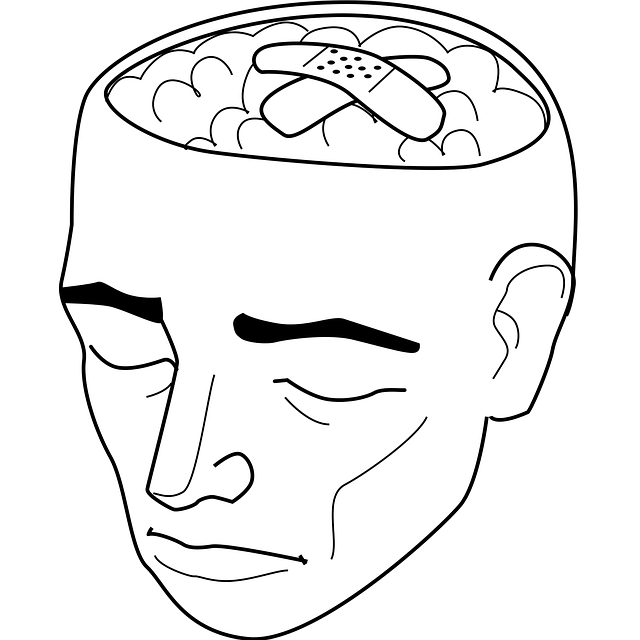Mindfulness meditation, a core practice in Centennial Cognitive Processing Therapy (CCPT), enhances mental wellness by promoting present-moment awareness and non-judgmental attention. Starting with just 5 minutes daily, individuals can improve emotional regulation, decision-making, and stress management. Guided meditations or apps support beginners, fostering self-awareness and coping skills. Regular practice leads to emotional growth, shifts in response to stressors, and enhanced compassion. Tracking progress offers valuable insights; setbacks are normal parts of transformation. Professionals in high-pressure fields can also benefit from these practices for mental health risk management.
“Unwind your mind and embrace a century’s worth of cognitive benefits with mindfulness meditation. This ancient practice, at the core of Centennial Cognitive Processing Therapy, offers a path to enhanced mental clarity and emotional well-being. In this guide, we’ll explore practical steps to integrate daily meditation into your routine. From understanding its fundamentals to tracking progress, you’ll discover how mindfulness can transform your life. Unlock the power within and embark on a journey towards a calmer, more focused mind.”
- Understanding Mindfulness Meditation: A Foundation for Centennial Cognitive Processing Therapy
- Practical Tips for Incorporating Daily Meditation Practice
- Tracking Progress and Embracing the Transformative Power of Mindfulness
Understanding Mindfulness Meditation: A Foundation for Centennial Cognitive Processing Therapy

Mindfulness meditation is a practice that cultivates present-moment awareness and non-judgmental attention. It forms the foundation for Centennial Cognitive Processing Therapy (CCPT), an innovative approach to mental wellness coaching programs. By focusing on the here and now, mindfulness meditation helps individuals develop coping skills to navigate life’s challenges with greater ease. This ancient practice encourages a deeper understanding of one’s thoughts and emotions, fostering a sense of calm and clarity.
In CCPT, mindfulness meditation serves as a powerful tool to enhance cognitive processing. It enables individuals to observe their mental patterns without getting caught up in them, leading to improved emotional regulation and enhanced decision-making abilities. The regular practice of mindfulness can transform one’s relationship with stress, anxiety, and even depression, promoting overall mental wellness development.
Practical Tips for Incorporating Daily Meditation Practice

Incorporating daily meditation practice into your routine can be a game-changer for mental well-being. Start small – even just 5 minutes a day – and choose a quiet, comfortable space free from distractions. Consistency is key; aim to meditate at the same time each day to establish a routine. Consider using guided meditations or apps designed for mindfulness training, especially if you’re new to meditation. These tools can help you stay focused and make the practice more accessible, particularly in today’s fast-paced world.
Remember that mindfulness meditation is not about achieving a certain state but rather observing your thoughts and sensations without judgment. With regular practice, you’ll find yourself becoming more attuned to your internal experiences, fostering better self-awareness and emotional regulation. This enhanced cognitive processing, akin to Centennial Cognitive Processing Therapy, can significantly contribute to effective stress management and the development of a robust self-care routine. Even professionals in high-pressure fields can benefit from incorporating these practices into their risk management planning for mental health.
Tracking Progress and Embracing the Transformative Power of Mindfulness

Tracking your progress is a vital part of any mindfulness journey and can be incredibly rewarding. As you consistently practice meditation, pay attention to changes in your emotional response to daily stressors. Do you feel more calm and composed? Perhaps certain reactions that once seemed automatic now require a moment’s pause for consideration. This shift indicates a transformation within your cognitive processes—a cornerstone of Centennial Cognitive Processing Therapy.
Embracing mindfulness is like tending to a garden; it requires dedication, patience, and regular care. Each meditation session cultivates compassion towards yourself and others, one of the core practices in Compassion Cultivation Training. Over time, these practices can lead to profound emotional healing processes, helping you navigate life’s challenges with greater equanimity. Remember, progress isn’t always linear, and moments of doubt or setback are part of the transformative process.
Mindfulness meditation, as a cornerstone of Centennial Cognitive Processing Therapy, offers powerful tools for enhancing mental well-being. By consistently applying practical tips outlined in this guide, individuals can embark on a transformative journey. Regular practice not only improves focus and reduces stress but also enables better emotional regulation and enhanced cognitive processing. Tracking progress along the way allows one to appreciate the profound effects of mindfulness, encouraging continued exploration and embracing its transformative power for a more balanced and fulfilling life.













